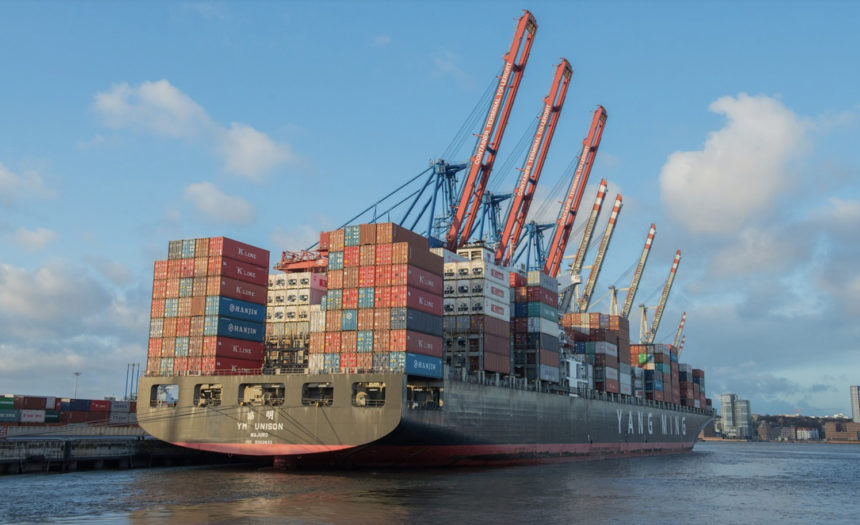
There are varieties of special words and terms for Trade. For this time, we will explain to you the special words “Prepaid” and “Collect”. Actually, I could not understand those words for sure when I started to work in Global Logistics.
 Senior Cat
Senior Cat What does “Collect” means? It means “Collecting” something? What is talking about?
I was feeling like that… I think that the other people not only me also have the same wondering feeling.
Today, we will explain to you the differences between “Prepaid” and “Collect” in order to understand those words easily.
Explained Freight Prepaid and Collect by Animation Video
Animation video will help to understand Freight Prepaid and Collect easily.
The differences between “Freight Prepaid” and “Freight Collect”

First of all, let us explain about “Prepaid” and “Collect”. Those words mention about “Freight” (Ocean/Air Freight of logistics) and it shows either “Freight Prepaid” or “Freight Collect” on Bill of Lading (B/L).
Understanding the differences is easy. As we explain those English words, it will be as below;
Freight : the freight fee for the shipping expenses
Prepaid : paying the fee in advanced (Pre-Paid)
Collect : collecting the fee (at destination)
“Freight Prepaid” means paying as Pre-Paid: exporting sides pay the freight as Pre-Paid. On the other hand, “Freight Collect” means collecting the freight: importing sides collect the freight fee.
Who pays the freight
・Freight Prepaid: Shippers pay the freight
・Freight Collect: Consignees pay the freight
What will we pay to the fee as “Freight”?
For this case, “Freight” means the Global Transportation fee. So this means for Ocean Freight and Air Freight.
Bill of Lading (B/L) and Air Waybill mention the freight on so the Freight does not include the fees such as track transportation at exporting and importing side, terminal handling charges at ports and customs clearance.
 Senior Seagull
Senior Seagull Only Ocean Freight and Air Freight. It is easy to see like this.
“Incoterms” related with Freight Prepaid and Collect

Those words “Freight Prepaid” and “Freight Collect” relate to the Incoterms because those words show which pay for the global logistics expenses either on exporters or on importers.
Freight Prepaid:CIF, CFR, DDU,DDP
Freight Collect:EXW, FOB
We mention Incoterms above which are generally used only but please see the details about Incoterms as following weblink:
What is the first task to remember the Trade Words? It might be thought that it is “Incoterms”. There are 11 kinds of Incoterms with abbreviated 3 English alphabetical letters such as CFR, EXW and so on. But don’t worry! Honestly, it is all OK to remember only 6 Incoterms out of 11 which are …
Prepaid/Collect depends on Shippers and Consignees
The customers will decide to pay the freight as “Freight Prepaid” or “Freight Collect” depending on the Incoterms contract between Exporters (Shippers) and Importers (Consignees).
For the case if the importers as buying the products would like to control the logistics by themselves, the customers should better to choose the trade terms (means Incoterms) as EXW or FOB.
If the importers would like to rely it on the exporters completely, the customers generally proceed the trade with CIF or DDU/DDP term.
 Senior Cat
Senior Cat We cannot control the logistics without understanding the trade terms.
The case “Freight Collect” caused problem to the Loading side Forwarder

Here is one example case in our company: there is one case which we have argued with the customer either “Freight Prepaid” or “Freight Collect” in the trade between Thailand and India.
We proceeded the business negotiation with the exporter in Thailand and they almost decided to agree with the contract as Freight Prepaid; trade term was CIF.
 Senior Seagull
Senior Seagull As we are a forwarding agent in exporter side, Freight Prepaid is easy to handle the trade. We can collect all freight at our side as Prepaid.
Trade Term has been changed Freight “Prepaid” to “Collect”
However, the exporter in Thailand and the importer in India changed the business negotiation by talking and then the customers changed their mind to proceed as Freight Collect right before exporting the cargo.
In the end, they decided to proceed as EWX. We proceed this business negotiation case in Thailand (because we acquired this business case through the freight rate quotation from the Shipping Line in Thailand), otherwise, we as a forwarder had to pay freight as Prepaid to the Shipping line.
 Senior Cat
Senior Cat I wanted to proceed this job under our control..
B/L shows the Freight like this
In Bill of Lading, we proceeded as below;
・Master Bill of Lading (B/L): Freight Prepaid
・House Bill of Lading (B/L): Freight Collect
 Senior Seagull
Senior Seagull “Hummm.. we sometimes have this kind of case.”
Please refer this weblink about the difference between Master B/L and House B/L.
*article will be ready later
Collect the freight(Money) from the company in India

India side is now responsible to collect freight from the customer. Our freight agent in India will contact to the importer directly, collect the freight, and then they will transmit the freight amount by International remittance to us in Thailand.
This means that it is difficult for us as Thailand side to control the money transaction of this business trade.
 Cat・Seagull
Cat・Seagull We in Thailand collect the freight from India..
Currency Problem happen

In addition, this trade agreed as EXW so the freight in Thailand side will be charged as Thai baht such as the track fee, custom clearance, and terminal handling charges at port and then we will charge those fee as USD to India side.
Through this charging process, the risk of currency is happened; so we need to decide about the exchange between those two countries business trade.
We were wondered and worried whether the Indian company were able to transmit the payment by the payment due date successfully… As we heard through the accounting log that Indian company is usually delay for the payment transaction.
It maybe OK if we did Freight Collect to Japanese company
Freight Collect is no problem to proceed the trade with Japanese company, but we would like to proceed this case as Freight Prepaid with Indian company if it were possible to do so.
 Senior Cat
Senior Cat Those days later, it was really hard to collect the freight from Indian company more than we expected.
To keep the balance in International Business Trade

example in above was very complicated because the business trade negotiation was almost completed and the exporter in loading port side almost prepared to arrange the trade.
If the forwarding agent in India (as discharging port side) negotiated with the importer to complete the business trade mainly in India side, this case was not like that a big trouble.
It is not simple to proceed the International Trade Business because there are the differences in each countries not only languages, cultures, and currencies but also business practice.
Forwarding agents are the one which we can make the good balance to consider those differences in logistics field.
Conclusion
It is such a simple rule to decide either Freight Prepaid or Freight Collect between exporters and importers because those are the agreement in business trade term.
However, this rule might be not simple as the agreement of payment process if we see all over the background of deciding the business trade contract; due to proceed the smooth Inter-national Business Trade, it is very important to corporate with forwarding agents.











